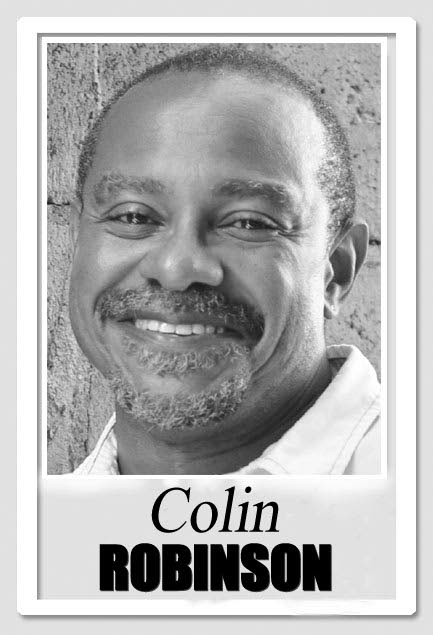Us all

The 67-year-old UN HIV programme chief resigned last week. He landed in a golden parachute as the new government’s health minister in his native Mali.
Michel Sidibé was a powerful voice for seizing this generation’s opportunity to end HIV. Early in his decade-long tenure, he’d made another quote about opportunity I was particularly fond of – the epidemic wasn’t only a problem, but a “political opportunity to trigger profound changes in society, to talk about difficult issues like sex education, homophobia and human rights issues in general like the position of women in society…an entry point to…bring about changes in legislation.”
HIV had been an impetus for significant social transformation, Sidibé noted, urging we not “only use it for HIV/Aids. It could be a way to transform and rebuild society around the social needs of the population.” The HIV movement “has given us the courage to dream big and turn those dreams into a reality” – it “can be the bridge…that connects other movements: maternal and child health, sexual and reproductive health, tuberculosis, gender equality, sexual violence…”
UNAIDS’s tribute to him is glowing: inspirational leader, undeterred commitment, true champion for people-centred health and development. His focus on the most vulnerable and marginalised gave voice to the voiceless. His strong belief in the power of communities paved the way for game-changing HIV responses. He spearheaded the most successful UN political declarations on HIV, which named key populations and included ambitious targets.
Sidibé wanted to hang on to finish more of this, he argued. He resigned because Sweden, UNAIDS’s No 2 donor, withheld funding until he did. Sidibé had overseen “a patriarchal culture tolerating harassment and abuse of authority and in his interviews with the panel he accepted no responsibility”: that was the conclusion of an investigation into sexual harassment accusations by a Swedish employee against his Brazilian deputy.
It’s not hard to imagine political culture in international organisations protecting men from accountability for sexual harassment. At a time a decade ago when I was jobseeking with UNAIDS and other international entities in TT, I stumbled on a European official working for one, on a gay “site.” He wasn’t specific where he worked, but shortly into our chat, I suggested, since I was job-searching in his field, could we shift our engagement instead to career advice. I wasn’t quite sure, as I’d never received guidance about this from anyone; but it felt right instinctively.
We were subsequently introduced at a party. Friends told me where he worked, and that he might be a good contact. I left him messages at work about employment, but never got any response. His sexual overtures on the site persisted, over months. I may not have been entirely consistent, but when they got too focused, I repeatedly suggested they were inappropriate.
I landed a job interview after months of trying. To my surprise, he chaired the telephone panel. It had been a while since he’d harassed me online. It was one of my worst interviews. He was charming enough; it was his Caribbean colleagues asking trick questions.
The following day he messaged me, on the sex site: How is that a-- of yours?
Had I reported him, he’d easily deny being the profile; or knowing he was talking to me. All I’d do is make it harder for gay men to get jobs – because we’re so messy. Of course, I never got the job. He was promoted out of TT. I hear he’s in leadership at the UN in Geneva.
Victimhood sat in the pit of my stomach for years.
Last month’s announcement of new appointments to TT’s Industrial Court, according to news reports, “left at least two women court employees and a janitor uneasy, since verbal claims had been lodged at the Industrial Court” that one appointee “sexually harassed them while intoxicated at court functions.” One letter-writer noted the response of the Attorney General "to the effect that he had not heard of the allegations. But now that it has come to the Government’s attention, the appropriate response required…is that the information should be investigated without bias and with due diligence. The State must lead by example.” The court, after all, adjudicates on these matters.
I can relate here, too. I have the sinking feeling that, were I appointed to a position of scrutiny, lurking somewhere in my past 40 years as a man is some expression or action that in the current culture constitutes sexual harassment.
My point isn’t that the judge or I shouldn’t be held accountable. We have to end sexual harassment; just like we have to end HIV. Sidibé’s transformative ideas didn’t “connect” to safety and justice in his own workplace; his investigators point out he failed to accept responsibility.
Sexual cultures of justice aren’t created by nice words; nor by punishment. As I’ve argued about violence, they begin with recognising our capacity to violate, strengthening how we all prevent that, and finding the best ways to expiate when it happens.

Comments
"Us all"